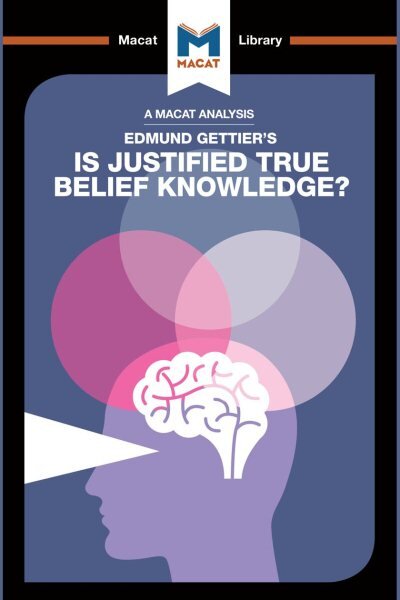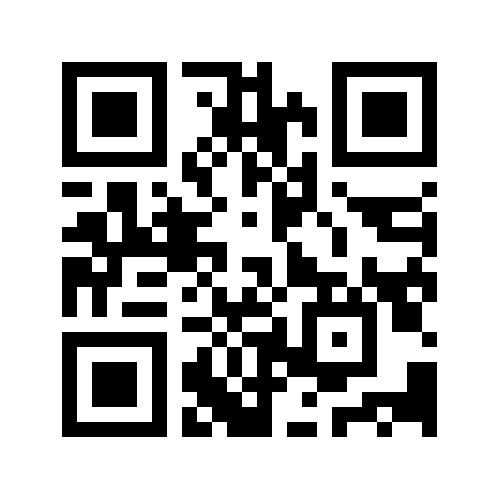-
Sodo prekės
- Sodo technikos dalys
- Trimeriai (žoliapjovės), krūmapjovės
- Vejapjovės, žoliapjovės
- Gyvatvorių, žolės žirklės
- Lapų siurbliai, šakų smulkintuvai, trinkelių valytuvai
- Karučiai
- Drėgmės, temperatūros, pH, ORP matuokliai
- Aeratoriai, kultivatoriai
- Malkų skaldyklės
- Žoliapjovės, vejos robotai
- Šlavimo mašinos
- Žemės grąžtai
- Sodo traktoriukai
-
Sportas, laisvalaikis, turizmas
- Kepsninės, šašlykinės, rūkyklos
- Žvejybos reikmenys
- Lauko baseinai
- Lagaminai, kelioniniai krepšiai
- Pripučiamos ir paplūdimio prekės
- Batutai
- Valtys, baidarės ir jų priedai
- Lauko žaidimai
- Azartiniai žaidimai, pokeris
- Medžioklės reikmenys
- Žaidimų stalai
- Lauko žaislai vaikams
- Hamakai, gultai, pavėsinės,sūpynės
- Kuprinės ir krepšiai
- Turistinis inventorius
- Gertuvės
- Pripučiami čiužiniai ir baldai
- Palapinės
- Turistiniai baldai
- Turistiniai čiužiniai ir kilimėliai
- Turistinės ir kelioninės kuprinės
- Miegmaišiai
- Biotualetai
- Turistinio inventoriaus, drabužių ir avalynės priežiūros priemonės
- Alpinizmo įranga
- Autoturizmo reikmenys
- Priemonės nuo uodų
- Gimnastikos ir fitneso prekės
- Kuprinės ir krepšiai
- Masažo reikmenys
- Vandens sportas
- Įtvarai
- Futbolas
- Rakečių sportas
- Krepšinis
- Kovos menai
- Ėjimo lazdos
- Tinklinis
- Smiginis
- Kamuolių pompos ir adatos
- Žingsniamačiai, chronometrai, širdies ritmo monitoriai
- Diskgolfas
- Baleto apranga
- Beisbolas
- Golfas
- Rankinis
- Jojimo prekės
- Grindų ir žolės riedulys
- Dviračiai, riedučiai, riedlentės
- Svoriai, svarmenys, grifai
- Žaidimų stalai
- Treniruokliai, treniruočių įranga
- Kamuoliai
- Aminorūgštys
- Angliavandeniai
- Baltymai
- Batonėliai
- Kiti papildai ir preparatai
- Energetikai
- Funkcinis maistas
- Glutaminas
- Kreatinas
- L-karnitinas
- Papildai ir preparatai masei auginti
- Papildai ir preparatai sąnariams
- Produktai atsistatymui
- Riebalų degintojai
- Papildai ir preparatai lieknėjimui
- Testosterono skatintojai
- Vitaminai
-
Baldai ir namų interjeras
- Virtuvės ir valgomojo kėdės
- Virtuvinės spintelės
- Virtuvės ir valgomojo stalai, staliukai
- Valgomojo komplektai
- Virtuvės stalviršiai
- Virtuvės baldų priedai
- Virtuvės baldų komplektai
- Virtuvės baldų kolekcijos
- Vonios spintelės
- Vonios veidrodžiai
- Vonios komplektai
- Vonios lentynos
- Vonios aksesuarai
- Vonios kambario baldų kolekcijos
- Vaikiškos lovos
- Vaikiški čiužiniai
- Vaikiškos kėdutės ir staliukai
- Vaikiški sėdmaišiai, foteliai, pufai
- Kūdikių lovytės
- Vaikiškos lentynos
- Vaikiškos spintos
- Vaikiškos komodos
- Vaikiškos spintelės
- Vaiko kambario baldų komplektai
- Vaikiški rašomieji stalai
- Vaikiškos mokyklinės kėdės
- Žaislų dėžės
- Vaikų kambario baldų kolekcijos
-
Buitinė technika ir elektronika
- Virduliai
- Vandens filtrai
- Gruzdintuvės
- Kavos aparatai
- Trintuvai, smulkintuvai
- Svarstyklės (virtuvinės)
- Kokteilinės
- Plakikliai
- Virtuviniai kombainai
- Vaflinės, el. blynų keptuvės
- Išskirtiniai maisto gaminimo prietaisai
- Vakuumatoriai
- Skrudintuvai
- Sumuštinių keptuvės
- Sulčiaspaudės
- Garų puodai, daugiafunkciai puodai
- Kavamalės
- Griliai, marinatoriai
- Daigyklos, lempos augalams
- Mėsmalės
- Gazuoto vandens aparatai ir priedai
- Vaisių džiovyklės
- Pjaustyklės, peilių galąstuvai
- Vandens aparatai
- Duonkepės
- Dulkių siurbliai
- Dulkių siurbliai-šluotos
- Plaunantys siurbliai
- Svarstyklės (buitinės)
- Dulkių siurbliai-robotai
- Langų valytuvai
- Garais valantys prietaisai, grindų valytuvai
- Akumuliatoriai dulkių siurbliams
- Dulkių siurblių priedai
- Meteorologinės stotelės, termometrai
- Masažuokliai
- Plaukų formavimo ir tiesinimo prietaisai
- Plaukų kirpimo mašinėlės
- Elektriniai dantų šepetėliai
- Manikiūro, pedikiūro aparatai
- Kraujospūdžio matuokliai
- Plaukų džiovintuvai
- Elektrinių dantų šepetėlių antgaliai
- Barzdaskutės
- Irigatoriai
- Epiliatoriai
- Veido priežiūros prietaisai
- Inhaliatoriai
- Šilumos prekės
- Termometrai
- Masažinės vonelės
- Ventiliatoriai
- Kondicionieriai, šilumos siurbliai, rekuperatoriai
- Šildytuvai
- Oro drėkintuvai
- Vandens šildytuvai
- Grindų ir veidrodžių šildymo kilimėliai
- Vonios ventiliatoriai
- Dūmų detektoriai
- Oro reguliavimo įrangos priedai
-
Vaikams ir kūdikiams
- Kūdikio priežiūrai
- Maitinimo priemonės
- Vaikiški vežimėliai ir jų priedai
- Autokėdutės ir jų priedai
- Prekės mamoms
- Kūdikių ir vaikų maistas
- Maniežai vaikams
- Gultukai ir sūpynės
- Čiužiniai kūdikiams
- Nešioklės
- Vaikštynės
- Antspaudai kūdikiams
- Sauskelnės
- Kūdikių lovytės
- Patalynė kūdikiams
- Kūdikio kraitelis
- Saugos varteliai, apsaugos
- Drabužiai kūdikiams
-
Kompiuterinė technika
- Nešiojami kompiuteriai
- Krepšiai, kuprinės, dėklai kompiuteriams
- Kompiuterių aušinimo ir kiti priedai
- Įkrovikliai nešiojamiems kompiuteriams
- Akumuliatoriai nešiojamiems kompiuteriams
- Vidiniai kietieji diskai (HDD, SSD, Hybrid)
- Operatyvioji atmintis (RAM)
- Korpusai
- Vaizdo plokštės (GPU)
- Pagrindinės plokštės
- Kompiuterių ventiliatoriai
- Termo pastos
- Maitinimo šaltiniai (PSU)
- Procesorių aušintuvai
- Komponentų priedai
- Optiniai įrenginiai
- Procesoriai (CPU)
- Korpusų priedai
- Garso plokštės
- Valdikliai
- Aušinimas vandeniu - rinkiniai
- Aušinimas vandeniu - aksesuarai
- TV imtuvai, FM, video plokštės
- Vaizdo plokščių aušintuvai
-
Kvepalai, kosmetika
- Makiažo pagrindai, pudros
- Akių šešėliai, pieštukai, blakstienų tušai, serumai
- Lūpų dažai, blizgiai, balzamai, vazelinai
- Nagų lakai, stiprintojai
- Manikiūro, pedikiūro priemonės
- Kosmetinės, veidrodėliai
- Antakių dažai, pieštukai
- Makiažo šepetėliai, kempinėlės
- Bronzantai, skaistalai
- Priklijuojamos blakstienos, blakstienų rietikliai
- Veido kremai
- Veido prausikliai, valikliai
- Veido kaukės, paakių kaukės
- Veido aliejai, serumai
- Paakių kremai, serumai
- Veido masažuokliai, valymo įrankiai
-
Mobilieji telefonai, Foto ir Video
- Telefono dėklai
- Apsauginės plėvelės telefonams
- Mobilieji telefonai
- Krovikliai telefonams
- Telefono laikikliai
- Laidai telefonams
- Atsarginiai maitinimo šaltiniai (power bank)
- Atminties kortelės telefonams
- Priedai telefonams
- Asmenukių lazdos (selfie sticks)
- Laisvų rankų įranga
- Akumuliatoriai telefonams
- Telefonų dalys ir įrankiai jų remontui
- Ausinės
- Priedai fotoaparatams
- Fotografijos apšvietimo įranga
- Skaitmeniniai fotoaparatai
- Atminties kortelės fotoaparatams, kameroms
- Momentiniai fotoaparatai
- Fotoaparato stovai
- Akumuliatoriai fotoaparatams
- Objektyvai
- Dėklai, krepšiai fotoaparatams ir objektyvams
- Fotoaparatų krovikliai
- Filtrai objektyvams
- Įkraunami elementai
-
Virtuvės, buities, apyvokos prekės
- Virtuvės įrankiai
- Taurės, puodeliai, ąsočiai
- Indai, lėkštės, pietų servizai
- Puodai, greitpuodžiai
- Keptuvės
- Kepimo indai, popierius, formos
- Maisto saugojimo indai
- Peiliai ir jų priedai
- Termosai, termopuodeliai
- Kavinukai, virduliai
- Stalo įrankiai
- Prieskonių indeliai, malūnėliai
- Prieskoniai, prieskonių rinkiniai
- Pjaustymo lentelės
- Konservavimo indai ir priedai
- Gertuvės, termo puodeliai
- Vienkartiniai, teminiai indai
- Vandens filtrai
-
Santechnika, remontas, šildymas
- Oro drėkintuvai
- Meteorologinės stotelės, termometrai
- Ventiliatoriai
- Eteriniai aliejai difuzoriams
- Kondicionieriai, šilumos siurbliai, rekuperatoriai
- Oro sausintuvai, drėgmės surinkėjai
- Oro valytuvai
- Vonios ventiliatoriai
- Oro reguliavimo įrangos priedai
- Mechaniniai įrankiai
- Elektriniai įrankiai
- Įrankių dėžės, laikikliai
- Sandėliavimo lentynos
- Buitinės kopėčios, rampos
- Tvirtinimo detalės
- Metalo detektoriai
- Sniego kastuvai, stūmikliai
- Pramoninės svarstyklės
- Surenkamos lentynų sistemos
- Sniego valytuvai
- Aukšto slėgio plovimo įranga
- Stebėjimo kameros
- Durų skambučiai, akutės
- Dūmų, dujų detektoriai
- Apsaugos sistemos, valdikliai
- Davikliai, jutikliai
- Domofonai
- Signalizacijos
- Apsaugos sistemų priedai
- Elementai
- Prailgintuvai
- Žibintuvėliai, prožektoriai
- Elektros jungikliai, rozetės
- LED juostos
- Elektros lemputės
- Elementų krovikliai
- Maitinimo šaltiniai
- Komponentai saulės jėgainėms
- Laikmačiai, termostatai
- Tekstiliniai kabeliai ir elektros kaladėlės
- Įmontuojami šviestuvai, LED panelės
-
Apranga, avalynė, aksesuarai
-
Autoprekės
-
Gyvūnų prekės
- Sausas maistas šunims
- Priežiūros priemonės gyvūnams
- Guoliai, pagalvėlės
- Transportavimo narvai, krepšiai
- Dubenėliai, dėžės maistui
- Antkakliai, petnešos šunims
- Skanėstai šunims
- Pavadėliai šunims
- Žaislai šunims
- Kelioniniai reikmenys
- Vitaminai, papildai, antiparazitinės priemonės šunims
- Drabužiai šunims
- Konservai šunims
- Kosmetinės priemonės gyvūnams
- Dresūros priemonės šunims
- Sausas maistas katėms
- Draskyklės
- Kraikas katėms
- Konservai katėms
- Kačių tualetai
- Žaislai katėms
- Pavadėliai, antkakliai, petnešos katėms
- Vitaminai, papildai, antiparazitinės priemonės katėms
- Skanėstai katėms
- Guoliai, pagalvėlės
- Transportavimo narvai, krepšiai
- Dubenėliai, dėžės maistui
- Kosmetinės priemonės katėms
- Priežiūros priemonės katėms
-
n18.lt specializuota parduotuvė
n18.lt specializuota parduotuvė suaugusiems
Prekes suaugusiems specializuotoje internetinėje parduotuvėje n18.lt gali matyti tik lankytojai, kurie yra ne jaunesni nei 18 metų. Šioje svetainėje skleidžiama informacija gali daryti neigiamą poveikį asmenims iki 18 metų.Peržiūrėti prekes -
Dovanos, dekoracijos, gėlės
- Kvepalai Jai
- Kosmetika Jai
- Aksesuarai moterims
- Mobilieji telefonai
- Belaidės ausinės
- Kvapų difuzoriai
- Dulkių siurbliai-robotai
- Kavos aparatai
- Išmanieji laikrodžiai, apyrankės
- Gruzdintuvės
- Namų kvapai
- Plaukų formavimo ir tiesinimo prietaisai
- Epiliatoriai
- Plaukų džiovintuvai
- Veido priežiūros prietaisai
- Elektriniai dantų šepetėliai
-
Apsauginės, dezinfekcinės, medicininės prekės
- Kaukės, respiratoriai
- Apsauginės sienelės, dezinfekcinės stotelės
- Dezinfekcinis skystis
- Vienkartinės pirštinės
- Dezinfekciniai valikliai
- Apsauginiai skydeliai ir akiniai
-
Knygos
- Maisto prekės
-
Išmanūs namai
- Išparduotuvė
-
Biurui, mokyklai, kūrybai
Rodyti daugiau kategorijų
.png) Klik ir vasara! Naujienos ir sezono pasiūlymai superkainomis!
Klik ir vasara! Naujienos ir sezono pasiūlymai superkainomis! 




